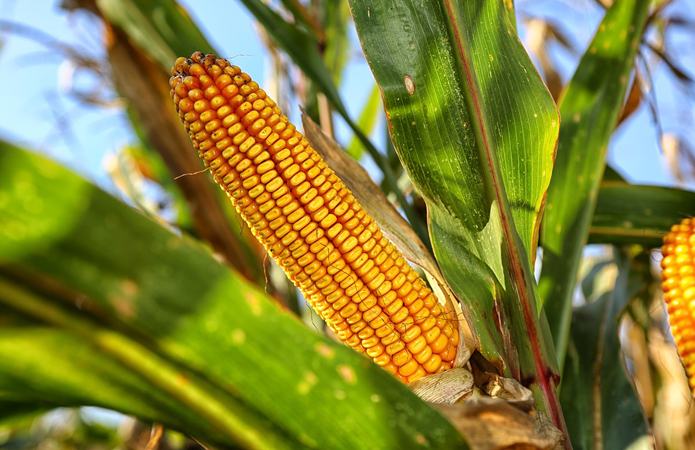
In agriculture, production is closely related to factors such as the area sown, climatic conditions, market demand and international trade policies. COCERAL, the European association focused on agricultural trade, has released its second forecast for food production in the EU and the UK in 2025. The report not only reveals the expected changes in crop yields in the coming year, but also reflects the challenges and uncertainties facing the agricultural market from a business perspective.
COCERAL's forecast shows that while total grain production in the EU27 and the UK is expected to reach 29.61 billion tonnes, up from 222.4 million tonnes in 2024, this figure is slightly lower than the 29.78 billion tonnes forecast in August. This adjustment reflects the multiple challenges facing agricultural markets, particularly in staple crops such as wheat, barley, maize and rapeseed.
Wheat, an important food crop, saw its output forecast rise to 13.72 billion tons from 12.51 billion tons last year, seemingly a positive sign. However, this growth estimate is clearly lower than the 14.04 billion tonnes forecast in August. COCERAL noted that an increase in acreage and a recovery in yields in Western Europe should have pushed wheat production above last year, but a decrease in acreage in France and the United Kingdom has weighed on the yield outlook. As the major producers of wheat in Europe, the reduction in the sown area of these two countries will undoubtedly have a ripple effect on the global wheat market. From a business perspective, this means that wheat supplies are likely to tighten, leading to higher prices that will affect food processing, livestock farming and international trade.
Barley production forecasts show a similar trend. Although it is expected to increase from 578,000 tons to 582,025 tons, this growth is still lower than the August forecast of 602,025 tons. Barley as feed and brewing raw materials, its yield changes will directly affect the development of animal husbandry and brewing industry. The lack of supply could lead to higher feed costs, which in turn could push up the price of meat and alcohol products. For companies that rely on barley as a raw material, this undoubtedly increases operating costs and operational risks.
The forecast of maize yield presents a complicated situation. It is expected to increase from 633,000 tons year-on-year to 632,025 tons, although higher than the previous forecast of 580,000 tons, but the growth is mainly driven by higher production in the Balkan countries. At the same time, production in Germany and France declined slightly. This regional yield difference will have a differentiated effect on the maize market. Increased production in the Balkan countries may boost the growth of corn exports in the region, while declining production in Germany and France, as the main producers of corn in Europe, may lead to tight corn supplies within Europe. From a business perspective, this divergence trend will increase the volatility of the corn market and increase the difficulty of corporate purchasing and inventory management.
The production forecast of rapeseed crop also shows a trend of recovery growth. It is expected to recover to 202,025 million tons from 180,000 tons last year, mainly due to the resumption of seeding patterns in Romania and Bulgaria and the recovery of yields in France and Germany. However, compared with the expected value of 230,000 tons in December, this increase is still insufficient. Rapeseed is an important raw material of edible oil and biodiesel, and its output change will directly affect the supply and price stability of edible oil market. The lack of supply could lead to higher cooking oil prices, increasing the cost of living for consumers. At the same time, the raw material cost of the biodiesel industry will also rise, affecting its competitiveness.
From a business perspective, COCERAL's forecast reveals the multiple challenges facing the agricultural market. First of all, the decrease in the sown area reflects the farmers' lack of confidence in agricultural production. This could be due to factors such as rising agricultural production costs, fluctuating agricultural prices and climate change. In order to avoid the risk, farmers may choose to reduce the area sown or switch to other more economical crops. This trend will directly affect the stability of food production and supply.
Secondly, the uncertainty of output forecast increases the operational risk of enterprises. The cyclical and unpredictable nature of agricultural production makes it difficult for companies to accurately predict future supplies. This may lead to deviations in procurement, inventory management and production planning, which in turn affect the profitability and market competitiveness of enterprises.
In addition, changes in international trade policies will also have a profound impact on agricultural markets. With the rise of global trade protectionism, countries are likely to adopt more stringent trade barriers to protect their agricultural industries. This will lead to the obstruction of international trade in agricultural products, affecting the supply and demand balance and price stability of the food market. For countries that rely on imports, this change will exacerbate food security risks.
Taken together, COCERAL's forecast not only reveals the expected changes in EU and UK food production in 2025, but also reflects the challenges and uncertainties facing agricultural markets from a business perspective. From a business perspective, these challenges will increase companies' operational risks and market volatility. Therefore, enterprises need to pay close attention to market dynamics and policy changes, and formulate reasonable purchasing, inventory management and production planning strategies to cope with potential risks and challenges. At the same time, the government also needs to strengthen agricultural policy support and market supervision to ensure the stability and sustainable development of the food market.

On the morning of November 18th local time, the stock markets of Japan and South Korea opened with a sharp decline.
On the morning of November 18th local time, the stock marke…
Countless AI agents are transitioning from isolation to col…
In November 2025, a sudden political storm swept through th…
The data recently disclosed by South Korea's Ministry of La…
Recently, according to The US industry media SeafoodSource,…
As the gunfire in the Gaza Strip gradually subsided in the …